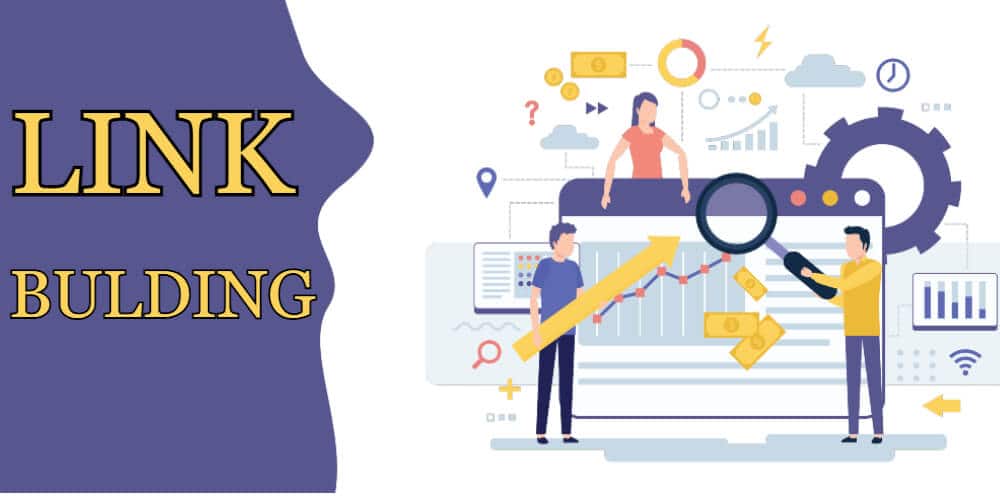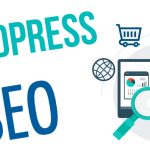
Building links (also known as link-building or link-building) consists of promoting your website to other websites to obtain a link (hyperlink) on their site to your website.
INSIGHTS ON WHY BUSINESSES INVEST TIME AND RESOURCES IN LINK BUILDING?
If you want traffic from search engines, regularly build links from relevant sites. You need to build links. Link building requires Linking Building excellent communication skills, persistence, and creativity. It’s a combination of marketing, sales, and psychology.
WHAT IS THE POINT OF LINK ACQUISITION IN MARKETING?
- Search engine optimization (SEO) relies on links.
- Links are a major component of Google’s (and other search engines’) search algorithm.
- Audience development is enhanced by links.
- When another website links to yours, it allows another audience direct access to your site and can pass referral traffic to you.
- For marketing purposes, links are valuable.
- A link is a vote of confidence between two websites. A link creates a positive connection and builds a relationship.
To increase traffic online, links are essential. Without links, a website isn’t going to receive any traffic – from search engines, or other websites.
Here’s the short, nitty-gritty explanation. Let’s dig a little deeper.
What it is:
Building links is the process of securing links back to your site (or a client’s site).
Here’s why:
Google search is based on links. The more links your website receives from relevant and authoritative websites, the better it will do in relevant searches. In addition to driving referral traffic, links also help build relationships.
Here’s how:
SEO companies employ diverse strategies to persuade another website that it is in their — or their visitors’ — best interest to link to a page on your website.
Here is the When:
The practice of building links has gained popularity since 1998, the year Google was founded.
Who are they:
Search engine optimization, marketing, and website owners use link building to increase traffic to their sites.
LINK BUILDING IS VALUED
The web cannot exist without links.
The web is made up of links — they are the threads connecting millions of websites, making it interconnected.
Marketers and businesses should be aware of links:
- Linking is the primary method of online navigation, connecting web pages. Links are naturally perceived as signals of authority and trust by humans.
- The search engines (e.g. Google) view links as a “credibility vote” from view links as signals of authority, trust, and relevance.
Marketing, audience development, relationship building, and SEO.
HOW TO NAVIGATE THE WEB
The primary method of navigating the web is through links.
WE COULD NOT NAVIGATE THE INTERNET WITHOUT LINKS.
Navigating to a page can be accomplished in three ways:
- Add a bookmark to a page.
- Enter the full URL path into your browser.
- Click on the link.
Navigation on the web is largely based on links. If you’re on social media, searching, or browsing a popular site like Reddit, you’re probably clicking links to move between pages.
It isn’t practical to remember URLs and create thousands of bookmarks.
Weblinks are crucial to search, website architecture, user experience (UX), audience development, and human accessibility.
LINKS AS A RANKING SIGNAL
CORE RANKING SIGNALS FOR SEARCH ENGINES ARE LINKS.
One study by Conductor reports that search accounts for more than 60% of the internet’s traffic. In 2021, Google crashed unexpectedly, and 40% of Internet traffic was lost.
For most businesses online, search is the primary source of traffic.
There is an entire industry dedicated to optimizing websites for search engines, called search engine optimization (SEO).
Link building is an integral part of SEO. Websites cannot rank in competitive search queries without links.
The core system of Google, which led to its dominance as a search engine, is PageRank. PageRank is Google’s algorithm that weighs links and affects websites’ search rankings.
Both humans and search engines recognize the importance of links, which means building links online requires sustained, concentrated effort.
INTERESTING LINKS
Links of quality don’t just happen.
A GOOD LINK REQUIRES INTENTIONAL EFFORT.
Website owners are often told by Google to “write great content.” You should create content that provides value to your readers.
However, valuable content requires promotion. To gain the links your website deserves, you need to intentionally promote your pages on websites where your links make sense.
Links can’t form otherwise.
As a result of a joint study between BuzzSumo and Moz, almost all posts online do not contain external links (links to other websites).
It is unlikely that most content online will receive significant search engine traffic, the primary source of online traffic.
A few natural links from relevant and quality websites can be helpful. Ranking no longer requires hundreds or thousands of links. A single link’s value greatly increased, giving quality websites even more influence within their respective industries.
In order to gain an audience’s trust, it is important to demonstrate an audience’s value.
The process of building links, in its simplest form, involves getting other websites to link to yours. Businesses and marketers should all be striving to build links to drive referral traffic and increase their site’s authority.
Linking (Adjective) is the act of connecting elements or things together.
A page’s authority, credibility, and trustworthiness are implied. Links on a page are like votes of confidence, credibility, and authority. In general, the more links a page gets, the more votes it gets, which can improve its ranking.



